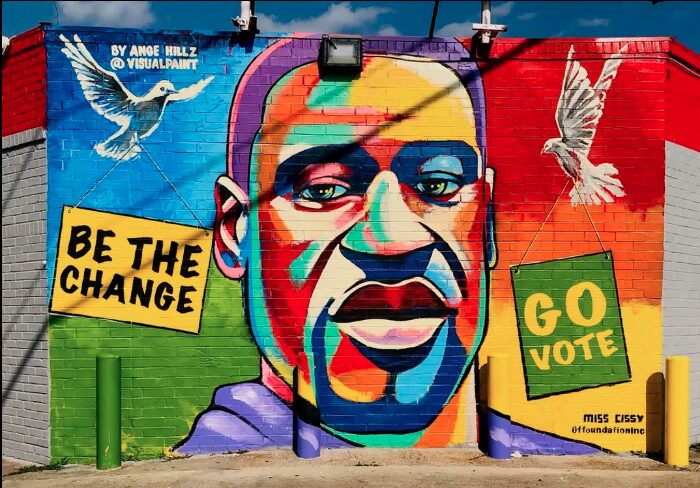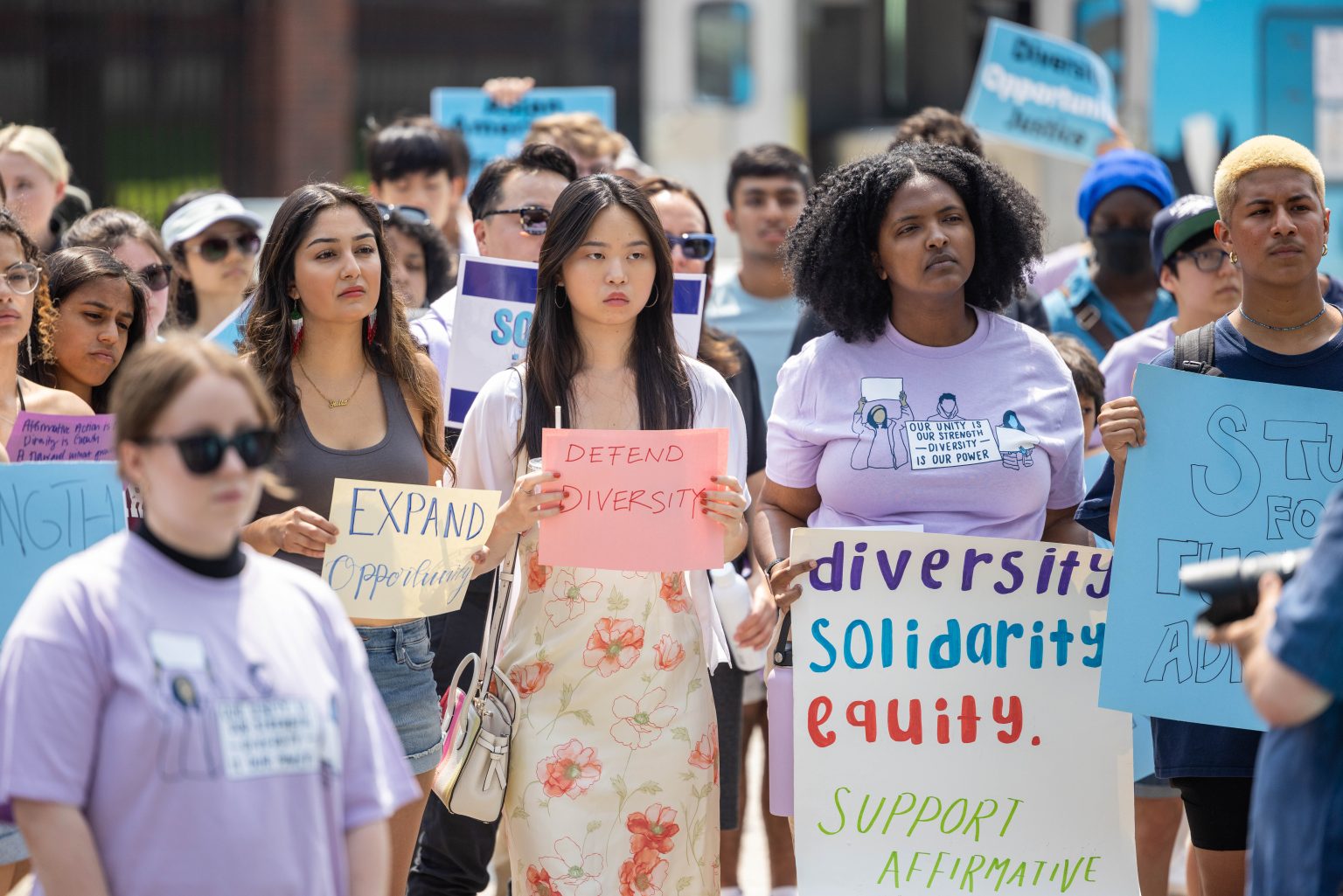
Historically, politics in the United States has not always been focused on the ‘all’ in the “…with liberty and justice for all” part of our pledge. One minute there’s life, liberty and the pursuit of happiness, then it’s takebacks on our civil liberties & body autonomy. Among the most recent reversals are the ending of Affirmative Action & Diversity Equity & Inclusion, or DEI. Then we’re led to believe that what we said we need is what was holding us back. The 2023 Supreme Court decision striking down Affirmative Action tells us that these policies and legislation were preventing all Americans from achieving the American dream and had to go. Loss of legislation leaves citizens vulnerable and instead of offering new laws, we’ve been subjected to a long parade of performative actions. The contrast between performative actions and tangible efforts to address inequality highlights the challenges and opportunities in advancing social justice. While performative actions offer symbolic support, they fall short of creating meaningful change. Genuine efforts, including robust DEI and Affirmative Action policies, are essential for addressing systemic disparities and promoting equity.
Affirmative Action emerged in the 1960s as a series of policies aimed at increasing the representation of historically marginalized groups in education and employment. It was a direct response to systemic discrimination, aiming to provide opportunities for Black Americans, women, and other underrepresented groups. The Civil Rights Act of 1964 and subsequent executive orders laid the groundwork for Affirmative Action, mandating proactive measures to prevent discrimination and promote diversity. DEI, on the other hand, is a broader and more recent framework that encompasses not only race and gender but also other aspects of identity such as sexual orientation, disability, and socioeconomic status. DEI initiatives seek to create inclusive environments where diverse individuals can thrive, going beyond mere representation to address systemic inequities in organizational culture, policies, and practices. In recent years, societal and political upheavals have highlighted the stark contrast between performative actions and genuine efforts to address deep-seated issues of inequality.
The murder of George Floyd in May 2020 sparked a global movement against racial injustice, prompting organizations and individuals to pledge support for Black Lives Matter and related causes. However, many of these pledges amounted to performative actions—symbolic gestures like murals, crosswalks and streets emblazoned with BLACK LIVES MATTER and politicians draped in kente cloth kneeling in the rotunda -all leading to little substantive change. July marks the four-year anniversary of the “Men In Comics Say No” pledge made to foster a safe work environment within the industry. Companies changed their social media avatars, issued statements of solidarity, and made one-time donations, but failed to implement long-term strategies to address systemic racism within their own structures. Similarly, during the COVID-19 pandemic, the disproportionate impact on Black and Latino communities highlighted existing health and economic disparities. While some institutions acknowledged these disparities, few took concrete steps to address them, such as implementing equitable healthcare policies or providing targeted economic support. Performative actions are characterized by their superficial nature—they give the appearance of support without enacting meaningful change. Tangible actions, in contrast, involve measurable, sustained efforts to address the root causes of inequality. These include revising hiring practices, investing in community resources, and enacting policies that promote equity and inclusion. The limitations of DEI initiatives have been exacerbated by a growing conservative backlash against these efforts. Political conservatives have increasingly weaponized narratives of nepotism and so-called “DEI hires” to undermine the progress made by marginalized communities. This rhetoric, which frames DEI initiatives as unfair advantages for minority groups, has gained traction in mainstream political discourse.

A notable example is the criticism leveled against Vice President Kamala Harris. As the presumptive Democratic nominee for the 2024 Presidential election, Harris has been repeatedly labeled as a “DEI hire” by her detractors. This narrative dismisses her extensive qualifications and accomplishments, reducing her candidacy to a tokenistic gesture rather than a legitimate bid for the highest office in the land. Such attacks serve to delegitimize the achievements of women and people of color, reinforcing the very inequities that DEI initiatives seek to dismantle. This backlash is part of a broader trend where conservatives have used accusations of nepotism and “reverse discrimination” to challenge DEI and Affirmative Action policies. For instance, the Supreme Court’s decision to hear cases challenging the use of race in college admissions underscores the ongoing controversy and the potential dismantling of Affirmative Action. Ironically, white women have been among the primary beneficiaries of Affirmative Action and DEI initiatives. According to a 2019 report by the Center for American Progress, white women have made significant gains in employment and education due to these policies. They have experienced increased representation in professional and managerial positions and higher education enrollments. Despite this, white women have also played a prominent role in the opposition to these initiatives. This paradox reflects the complex dynamics of privilege and discrimination, where some individuals benefit from policies designed to promote equity while simultaneously challenging their legitimacy.
Authentic implementation of DEI and Affirmative Action policies can yield substantial societal benefits. These initiatives help create more diverse and inclusive environments, leading to increased innovation, better decision-making, and enhanced performance. Studies have shown that diverse teams are more creative and effective, as they bring varied perspectives and experiences to problem-solving.
Moreover, policies focused on empowerment, education and false narrative resistance that promote equity and inclusion can address systemic disparities, leading to improved outcomes for marginalized communities. For instance, Authentic legislation and policies supporting DEI and Affirmative Action have proven societal benefits: California’s Proposition 16, though unsuccessful, sparked statewide conversations and initiatives to address systemic inequality, highlighting the importance of affirmative action in education and employment. The U.S. Department of Education’s Office for Civil Rights enforces Title IX regulations, which have increased opportunities for women in education and sports, contributing to greater gender equity and empowerment. Meanwhile Texas governor signed an anti-DEI law affecting all state funded entities leading to the elimination of over 100 jobs. As we deal with the end of DEI initiatives and the political backlash against them, it is important to recognize the benefits of these efforts and continue advocating for authentic, transformative change. True progress demands more than just optics; it requires sustained, meaningful efforts toward inclusivity and equity. Without genuine commitment, the illusion of progress will remain an illusion.








